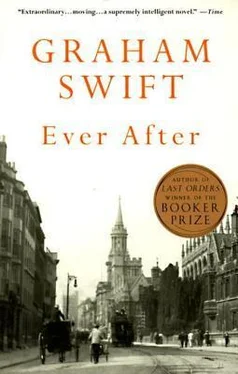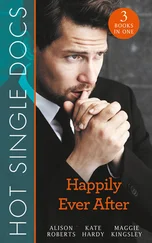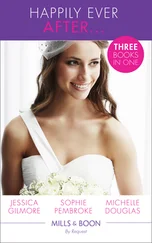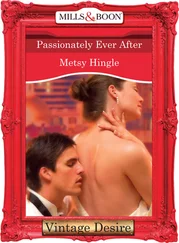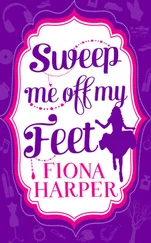“Give me my robe, put on my crown …”
I think she wanted recognition. She achieved it. Some of us want recognition, some of us don’t. Potter wants it. I can live without it (perhaps I should rephrase that). And some of us who want it never achieve it. It’s a funny thing, recognition. You achieve it and then you have problems about being recognised. You go around in dark glasses. And though you are recognised, everyone wants to know about this other person, this elusive, hard-to-spot character called “the real you.” The “real Ruth Vaughan,” as the journalists would have it. No one would recognise me, but nobody would want to ask me about the real me.
(Though I wonder who he is — really I do).
She used to say — a strange thing for an actress — that she never knew what she looked like, she couldn’t have described her own face if she were asked. My experience is different. When I look in the mirror (especially these days), I see this incorrigible mask. I know it’s not me, but I’m stuck with it. Perhaps it amounts to the same: you might be anybody . Which means I have the makings of an actor too. But not the gift.
How could you describe her face? There was no other word for it: it was full of life . So full of life. I think she was beautiful, but that is not an objective statement. I think she was beautiful because she was her . Because she was Ruth. She had brown-green eyes and a way of smiling and laughing with them before even moving her lips. Off-stage, off-screen, people always found her smaller, slighter than they had imagined. She had this — naturalness. Yet she was an actress. But isn’t that what actors seek — naturalness? There was this space that was always hers, just hers; this magic, mobile space. There were these audiences who claimed her, but there was always this space that was hers alone. And back in the days before she was famous, when she was only Girl Number Three …
Romantic, impossible love. The student and the chorus girl. The scholar and the actress.
She cut the process short. She couldn’t bear, or bear that I should bear, the coming disintegration, which, on that February day, by some inner gauge that very sick people have, she must have known was about to begin. I can’t think of any other reason. No, I can’t think of any other reason.
It’s wrong, of course. Suicide. My father was wrong. Ruth was wrong. I— But I’m still here. We don’t have the right. To take ourselves from ourselves. And from other people. It’s cowardly. It’s selfish. The mess it leaves for others. But there would have been mess anyway. It’s vain: a last bid for posthumous limelight; a staged exit. “I have immortal longings …” A form of death not so uncommon among actors. Though they aren’t supposed to. They are supposed, by the sheer force of their personalities, to make miracle recoveries and so inspire us all. They are supposed to turn their inexorable demises into brave, grotesque performances on behalf of medical research funds. We look to actors and actresses — don’t we? — to show us how to act.
You keep saying to yourself (trying to dismiss the thought, trying to give it your utmost attention) there will come a last time for everything. A last time to do this, a last time we do that. Simple, inconsequential things. A last day, a last hour. Then, when the last time comes, you don’t realise it’s the last time. She wanted to sleep. She slept all that afternoon. It was during these increasingly frequent periods when she slept in the day that I would begin, then immediately abandon, the exercise of trying to imagine the world without her. It was a fine, cold, clear day. I looked out towards the end of the garden. Beyond the trees on the other side of the field, the silver tip of a silage tower, hidden in the summer, glinted ruddily. Huge shadows barred the glowing folds of the Downs.
She didn’t wake till dark. I remember that she said she’d meant to wake before it was dark, and she gave a little, half-asleep, worried look. That same night, according to the findings of the inquest, she died, by her own hand, between the hours of three and five in the morning.
And I will never know whether she made up her mind suddenly, waking that night while I slept, or whether the intention was there even as she woke that afternoon. Even before then. And I will never know — it is an absurd, hypothetical question — whether, if I had had the choice, I would have wished for such a cruel, merciful blow or would have preferred her to linger on for more precious weeks, perhaps months, becoming less and less like the woman I would want to remember. A matter of recognition. I have the contrast, now, with my mother: a wasted figure, sprouting tubes in a hospital bed, resolutely letting her own death run its full course. Could I have borne to see Ruth like that?
But my mother was seventy-eight. And “resolutely”? I wonder, now.
I came down the stairs. Her body was lying on the sofa. Not “she”; her body. The difference sinks in. There were the pills; the empty tumbler on the coffee table. Cliché props.
“Our wooing doth not end like an old play; Jack hath not Jill.”
It’s not the end of the world. It is the end of the world. None of the arguments, none of the catechisms work. There was a time — don’t you remember? — when you never knew her; you lived without her then. No amount of grief ever brought anyone back. You wring your heart out over the death of one woman; but thousands die every hour, every minute. Well, I’m sorry. I’m selfish, I’m feeble, I only have heart enough for one.
Life goes on. It doesn’t go on. Yes, yes, I know, all we want in the end, we living, breathing creatures (am I still one of them?) is life. All we want to believe in is the persistence and vitality of life. Faced with the choice between death and the merest hint of life, what scrap, what token wouldn’t we cling to in order to keep that belief? A leaf? A single moist, green leaf? That will do, that will be enough. What do the dying cling to in their final moments? Sunlight through a curtain, the sound of a tennis game, the noise from a Paris street?
Good God, I am surrounded by leaves! But only Ruth will do. She represented life to me. I know that, now she is dead. She was life to me. And that isn’t just vain hyperbole, is it? She was an actress, wasn’t she? It was her job: to represent life to people.
I picked up the note. It was meant only for me, but it had to be submitted as evidence to the coroner. “I never could stand drawn-out farewells.…” I stooped over her body. It is almost inspiring, almost uplifting, at first, to be in the presence of such a momentous event. Later the madness, the helplessness, but first the gravity of the situation. I stooped over her body, as if I had rehearsed it all before and knew exactly what to do.
Romantic love. Romantic love. The first, flustered kiss on a wet night in a taxi to Girl Number Three. The last kiss, at the break of dawn, to the Queen of Egypt. “Now boast thee, death, in thy possession lies a lass unparallel’d.”
And in between? Happiness. Yes, I commemorate it. Happiness ever after.
So Matthew married Elizabeth, in Burlford church on 4th April 1845. And on that April day John Pearce would have presented the couple with the clock he had lovingly and expressly made for the purpose.
Quite possibly Matthew was in league with his father over the clock, since the Latin inscription on the brass backplate, though a perfectly apt motto for the young couple, also conveyed, being a quotation from Virgil, a sly tribute to the Rector, whose chief recreations were the Roman poet (he laboured on his own translation of the Aeneid ) and bee-keeping — complementary passions, as anyone will know who has read the Georgics . And perhaps the Rector, touched by the gesture, even more touched by the union of this sweet couple, which he himself had consecrated, refrained from ever pointing out (he was no pedant after all) that the Latin was the popular misquotation, the word order being inverted in the original — as was only characteristic of the Virgilian style and, in any case, required by the scansion.
Читать дальше
